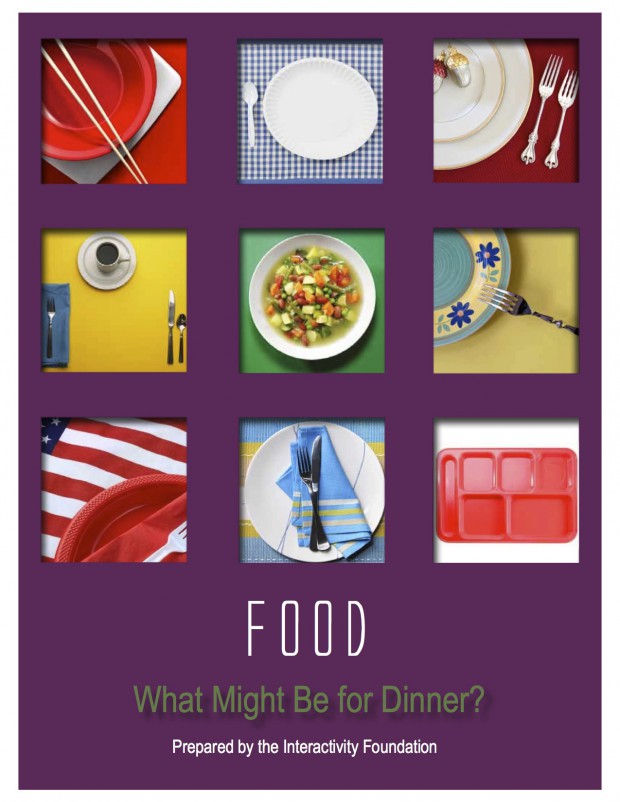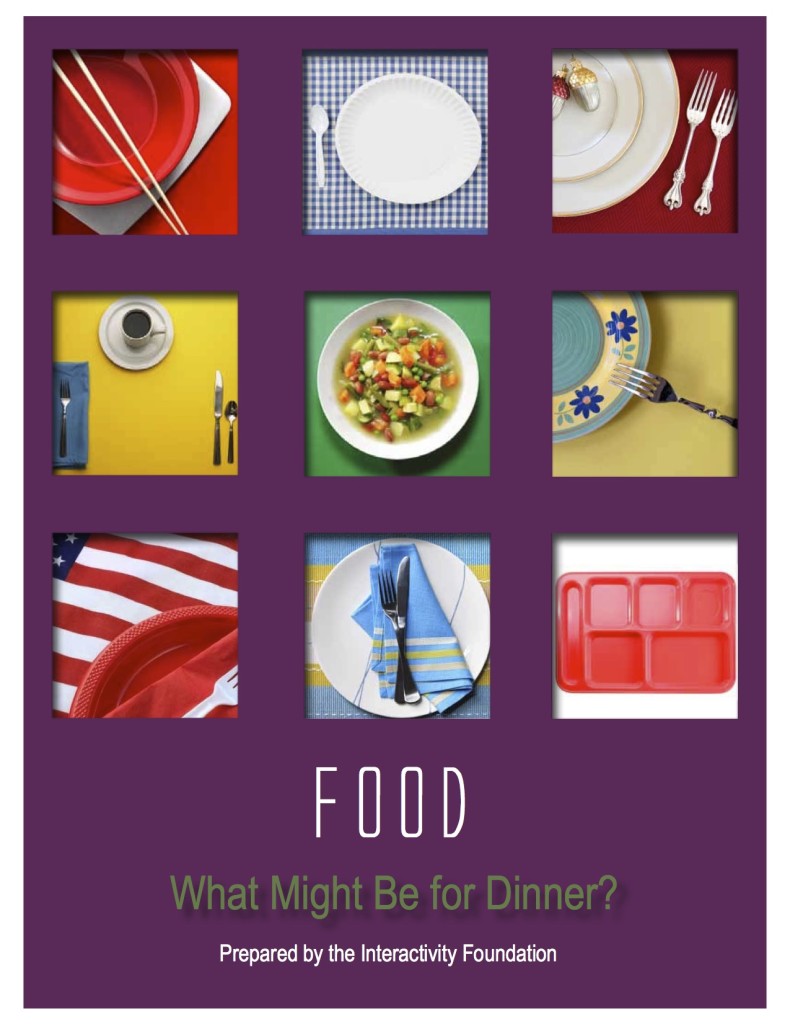
But as we make these and other resolutions this year, I’d like to suggest some other, complementary resolutions for food. That is—and not to suggest that most of us shouldn’t continue to work at eating less, eating healthier, and exercising more—but that as we do so we also might consider how our many individual food choices (what we produce, how we package and market it, what we buy, prepare, eat, and discard) interact with broader issues and concerns that affect us all. What are, and what should be, our public policies concerning the production, processing, distribution, and consumption of food? In the United States, we are fortunate (perhaps too much so) to both produce and consume a lot of food—both in the aggregate and per capita. But we rarely stop to consider how that food is produced, what kind of food we produce, how we process and distribute it, and most importantly what are the costs, benefits, and alternatives.
As we consider our New Year’s resolutions, we might also pause and consider some of the following thoughts for food:
- While we generally revere our agricultural heritage of independent family farms and farmers, the business of agriculture is increasingly concentrated, big, complex, and remains difficult. Less than 1% of Americans now earn their living from farming; and the average age for those that do is nearly 60. Farms are larger, profit margins thinner, and fewer and larger corporations control ever greater portions of the processing, marketing, and retailing of food—and in some cases the production as well. In some food markets, farmers are becoming laborers not owners of the business and land they work.
- Our calories are cheap and convenient by historic and worldwide norms:
- On average, Americans spend only 10% of their budget on food, down from 30% in 1930 and much less than people in most other countries.
- The time we spend preparing food has been reduced significantly; now less than 4 hours per week, down from 30 hours per week in the 1920s.
- 50% of our retail food dollars are spent in restaurants, up from 25% in 1955.
- And we throw away nearly 40% of our total food supply, up from 28% in 1974.
- And yet, fresh food and well-balanced meals are not evenly distributed, they’re not available—not just to those in developing regions of the world but to increasing numbers of Americans as well.
- Even as we produce more food than ever, approximately 15% of the world’s population (about 1 billion people) does not have enough to eat, and in the next 20 years the world’s population is expected to grow faster than our ability to produce more food: even more people will go hungry.
- Nearly 15% or about 47 million Americans (more than ever) receive benefits under the Supplemental Nutrition Assistance Program (commonly known as food stamps).
- Many market regions (both urban and rural), no longer have full service groceries with fresh fruit and vegetables, and the only food that is available—often at the local convenience mart—is highly processed, high in calories, and highly expensive on a per serving basis.
- And the health impacts of our increasingly cheap and processed food are problematic and expensive.
- Americans rank number 1 in obesity worldwide: 34% of adults and 20% of children are obese—both up dramatically from the 1980s.
- The Centers for Disease Control estimate that fully one-third of the U.S. Adult population will be diabetic in 2050.
- The health care costs related to obesity—already $147 billion in 2008—are expected to more than double by 2018.
So, back to those New Year’s resolutions. As we make them once again this year, we might also resolve to think about the broader societal impacts of both our personal consumption and our public policies concerning food.
If you are interested in more discussion about food issues and concerns, the Interactivity Foundation’s discussion guidebook on Food: What Might Be For Dinner includes 6 different policy frameworks–or general approaches to–these and other food concerns. The guidebook is available for download, without charge, from the Foundation’s website.
